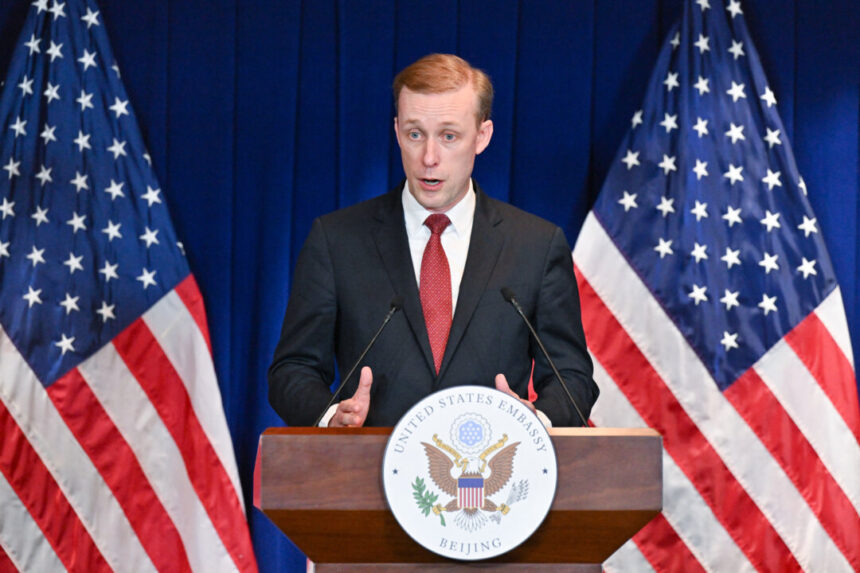The purpose of the US national security adviser’s recent visit to Beijing was to prevent China from exploiting potential vulnerabilities in the United States during sensitive periods such as ongoing wars in Europe and the Middle East and an upcoming presidential election, according to experts. Sullivan emphasized the importance of responsible management during these periods to maintain stability. Shi Shan, a China expert, noted that Sullivan delivered a clear message to Beijing in person. The visit also included discussions on regional stability and the risks of further escalation, particularly in light of China’s support for Russia’s defense industry. The US and China have agreed to a call between their leaders later this year, with the possibility of in-person meetings at upcoming international summits in November. Sullivan’s efforts to establish communication channels between military commanders were seen as significant steps towards de-escalation in areas of tension. The visit took place amidst escalating aggressions by China against neighboring countries, including the Philippines and Japan. Sullivan highlighted the US commitment to defending its allies in the region and warned against any further provocations. The timing of the visit was crucial, given the ongoing conflicts and potential unrest in the US during an election year. Elections are a significant concern for any nation, and the issue was consistently addressed by U.S. national security adviser Jake Sullivan during his meetings with Chinese officials. Last December, the Director of National Intelligence declassified a report revealing Chinese intelligence efforts to interfere with the 2022 midterm elections. The report stated that Beijing instructed officials to intensify their efforts to influence U.S. policy and shape public opinion in China’s favor. China-based hackers were also reported to have impersonated U.S. voters and used artificial intelligence to create divisive content during the elections.
Ping-Kuei Chen and Arthur Ding, both professors at Taiwan’s National Chengchi University, believe that Sullivan’s visit marked progress at a technical and temporary level. Despite the U.S. government’s efforts to communicate with the Chinese Communist Party (CCP), Beijing has shown no signs of changing its behavior. The fundamental differences in economic and military goals between the CCP and the United States continue to drive bilateral tensions.
President Biden’s decision to focus on foreign policy for the remainder of his term was met with speculation. Chen and Ding both shared their perspectives on Biden’s motives, with Ding suggesting that the new military-to-military channel’s effectiveness remains uncertain without proper authorization from Xi Jinping. However, Ding believes that the CCP is unlikely to make any sudden moves before the next U.S. president takes office.
In conclusion, Sullivan’s visit to China may have opened doors for temporary solutions, but the underlying tensions between the U.S. and the CCP are far from resolved. The future of military communication and cooperation between the two nations remains uncertain. Can you please rephrase that?
Source link





